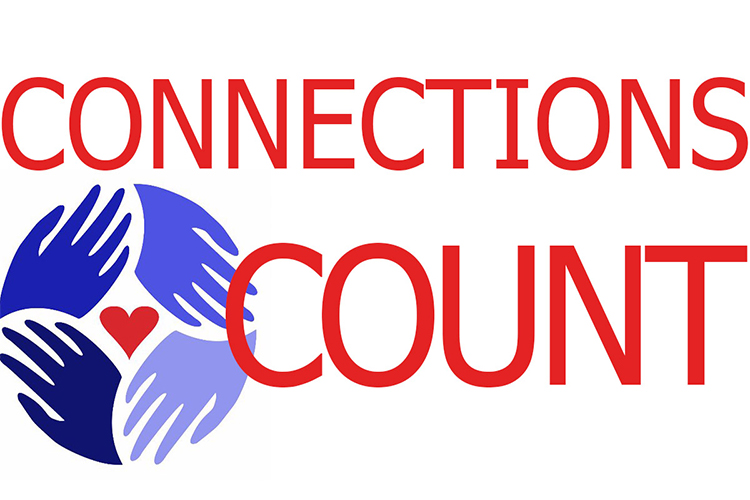
In a time where social interaction is restricted, TJ students and staff participated in a seminar to grow connections that were once lost. graphic by Caitlin Beery
Instead of Challenge Day for the junior class, TJ hosted its first Connection Counts seminar for the senior and junior class.
With many events being canceled and schools switching to remote learning, students and faculty alike have had a hard time connecting with their peers and coworkers. However, on January 25th, TJ hosted Connections Count for staff, seniors, and juniors. It was a two-and-a-half-hour event on the video conference platform Zoom that focused on social awareness, self-awareness, and self-management. Unlike the typical Challenge Day, which is centered around social awareness and creating understanding, this event was more focused on strengthening connections and developing a growth mindset rather than a fixed mindset. Counselor Maggie Kennedy stated, “Many of our students and staff are feeling disconnected from their peers and the TJ community, and this was a way to try and virtually engage that connection.”
To begin the afternoon, many icebreaker games were played to help students and staff to become more comfortable with everyone in the conference. After the icebreakers, students and staff were asked to reflect on the past year and say what they were most proud of for accomplishing in that year. This activity allowed participants to remember the positives of 2020, despite all of the hurt and pain that the year brought. Following this discussion, the leaders of the event, Trish Bruno and Christopher Heinze, taught the group about fixed and growth mindsets and how these mindsets can impact a person’s ability to respond to stressful situations, like a pandemic. The leaders taught the participants how to start thinking with a growth mindset by writing down goals that they have for themselves and what steps they need to take in order to reach those goals. This allowed students to become more comfortable with failure, taking it as an opportunity to grow rather than as a limit to their abilities. Following this discussion, the leaders led students and staff through a mindfulness exercise and allowed for students and staff to take in the moment and be present in it.
Much like Challenge Day, students and faculty were split into family groups. In those groups, each person got two minutes to talk about what everyone wished others knew about one another. Senior Adelaide McLain stated, “My favorite part was when we split up into small groups and discussed the ongoing challenges in our lives right now. 2020 was a difficult year for everyone, and taking the time to recognize that was necessary.” Additionally, the program had its own virtual version of “Walk the Line” called “Raise Your Hand.” This reminded many seniors and staff of their earlier experiences with Challenge Day. Kennedy stated, “I think it’s a good reminder that we all have struggles that others don’t see. It’s also a good reminder that we are not alone in those struggles here at TJ and I think that’s really powerful.” The family groups were a favorite among students, with some wishing there was more time in them. Senior Elijah Leahy stated, “The opportunity to be open about myself and to hear about others was a really comforting one. I noticed that the longer we talked in our meetings, the more comfortable everyone got. It wouldn’t hurt to have the event run longer, or to structure more of the time towards small groups.”
In a typical school year, the junior class would participate in a class-wide Challenge Day. The goal of this event is to create an environment where everyone feels safe and accepted and to help the junior class become close before heading into their senior year. Unfortunately, the ongoing pandemic has pushed back this experience. Connections Count allowed some 11th graders to get a taste of what Challenge Day would be like. Junior Eden Abraham stated, “I feel this event helped me share more with my teachers and my classmates. There were smiles, laughter, tears, and some heartbreak with what people were sharing and people being comfortable enough with sharing their own stories.” Having experienced Challenge Day, Leahy recalled, “I remember that being in a space with supportive people, welcoming hugs, and vulnerable tears was a great tool to help make real connections and feel loved. Of course, Connections Count didn’t have that same intimacy, but I still felt like I could support and connect with people.”
When the seminar ended, the group was left with new connections between peers and staff members. Although the virtual setting was not ideal, students and staff alike all left the seminar feeling a new sense of understanding and belonging—something that students and staff were missing out on. McLain stated, “Throughout Connections Count, I was reminded of the strength of the TJ community that consistently supports one another. I feel as though existing connections were strengthened, new connections were developed, and everyone was reminded that they had support.”